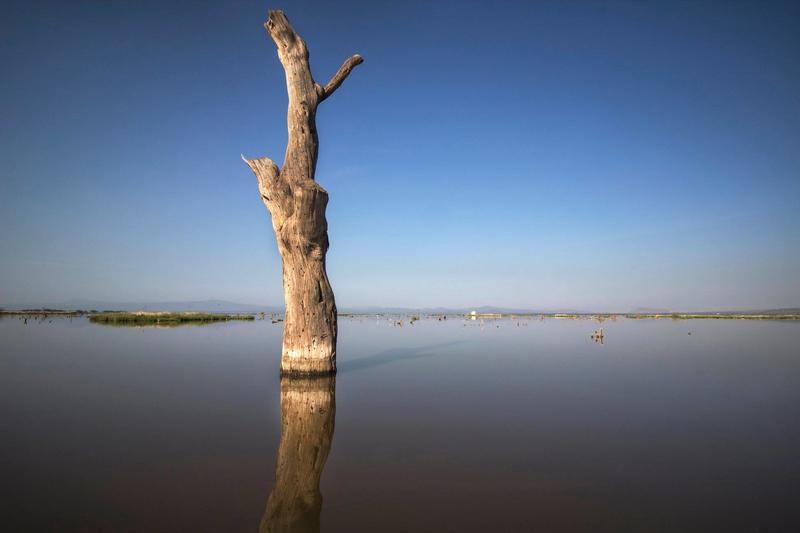Securing access to safe water is more important than ever

Lake Beseka, Fentale, Ethiopia, photo by Alice Chautard
In this blog post, Dr Catherine Fallon Grasham, a social scientist in the DfID-funded global research programme, REACH, reflects on how water security thinking is changing during the COVID-19 pandemic.
Water security, the climate crisis and the COVID-19 pandemic are intimately interwoven. Safe and reliable water access plays a key role in reducing vulnerability to the climate crisis. Now, more than ever, we are crucially aware of the connection between water and our health since handwashing is one of our most effective tools in controlling the spread of COVID-19.
Water security is an essential component of the poverty reduction effort and underpins social and economic development. The United Nation’s Sustainable Development Goal 6 has targets and indicators for universal and equitable access to safe and affordable drinking water for all, as well as increases in handwashing practices.
The connection between water security and the climate crisis is at the heart of water research, policy and practice. This is because we know that any efforts towards improving access to water, and reducing the risks from droughts and floods, can only be sustainable if they consider how the distribution of water resources will be altered with future climate change.
The relationship between water, health and handwashing is an important, but normally a less prominently considered component of water security. Handwashing has been shown to reduce the incidence of diarrhoea, which is the second leading cause of death among children under the age of 5. Also, studies show that maternal mortality rates drop when birth attendants wash their hands before delivery.
During the COVID-19 pandemic, there has been an enormous global effort towards promoting handwashing. For many communities affected by poverty, the ability to engage in handwashing practices is constrained by intermittent and unsafe water supplies. According to the World Health Organisation, 1 in 3 people globally do not have access to a safe reliable water supply.
Handwashing practices are, to some extent, mediated by social and cultural norms and are also dependent on access to soap. In Ethiopia, where I do my research, food is eaten with hands and handwashing before meals is common practice. Handwashing is also important in religious rituals such as ablutions before prayer. Soap is often in short supply or too expensive to be accessed.
However, water is a critical component of handwashing and many families that I interact with in Ethiopia tell me that they do not have reliable access to safe water at home. People spend time travelling around to find water, often retrieving it from unsafe sources such as rivers or lakes.
In August of last year, a farmer living in a rural area of Ethiopia told me, “We travel around to different sources to find water. Most of the time the children go but sometimes I go myself. During the dry season it is more difficult because we have to bring water for the cattle as well and the distance is further. Every year there is a time when there is no water and we come back with an empty barrel and we are thirsty.”
In these situations, families must prioritise activities that use water at home. Difficult value- and needs-based choices are made about how to use scarce water. Inevitably, activities such as cleaning laundry and handwashing are forgone in favour of drinking and cooking. The climate crisis will likely exacerbate the challenges that some people face in accessing safe water which will further compromise their ability to engage in handwashing practices.
The COVID-19 pandemic has pushed health higher up the priority list of reasons why water security is so important. COVID-19 has shifted our thinking, introducing a new dimension at the forefront of our minds – the critical role of safe and reliable water supplies for controlling the spread of a pandemic. This now sits alongside the climate crisis as the two most pressing reasons why we continue to work towards getting water management right.
Dr Catherine Fallon Grasham is a social scientist who specialises in water security in Ethiopia. She currently leads social science research in the Awash River basin, Ethiopia, for REACH: Improving water security for the poor, an interdisciplinary, global research programme. With mixed research methods, her work addresses the interconnectedness of water, politics and human development with a particular focus on the inclusion of marginalised voices in research.
Climate Crisis Thinking in the Humanities and Social Sciences, TORCH Networks


